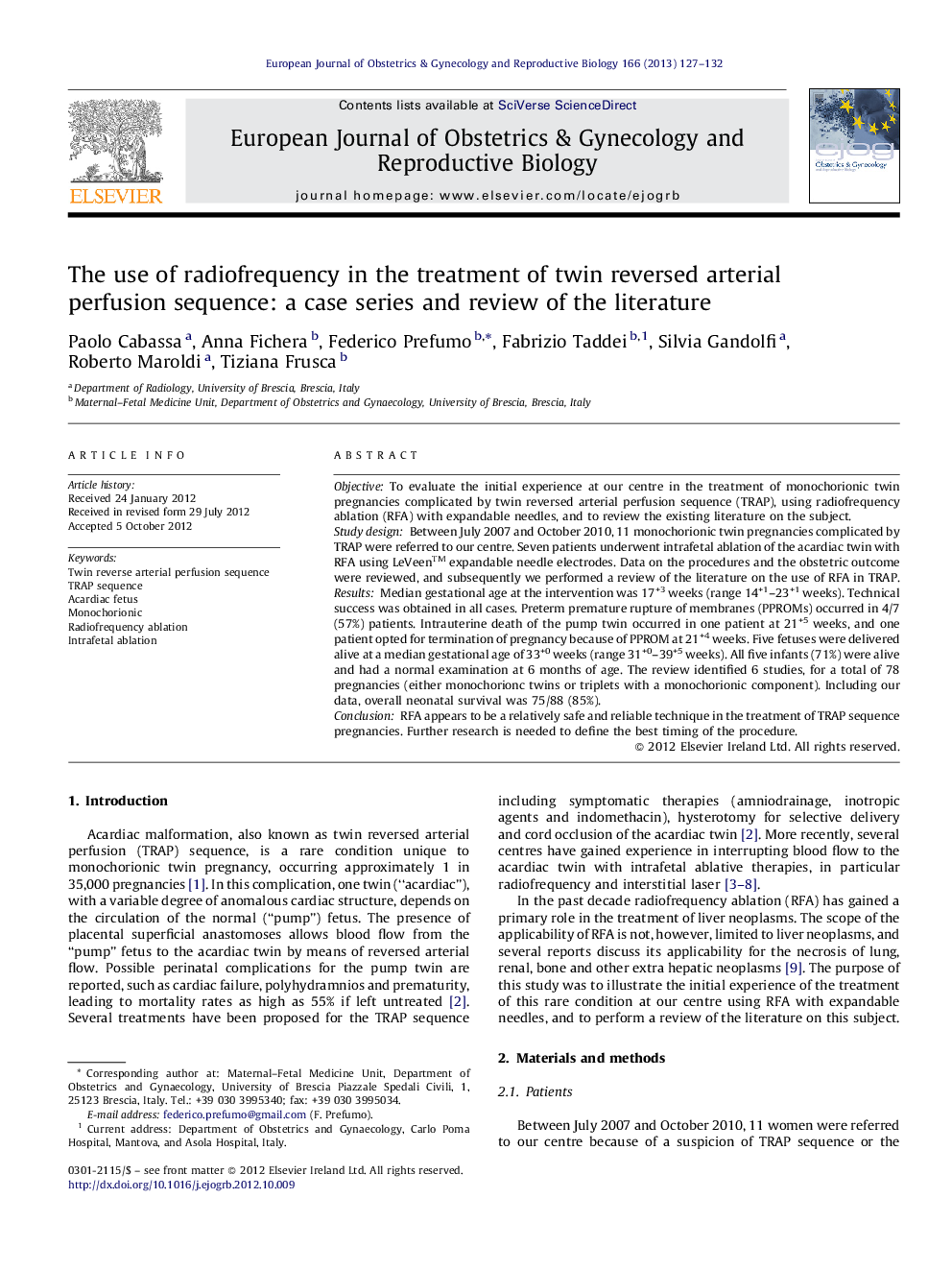| Article ID | Journal | Published Year | Pages | File Type |
|---|---|---|---|---|
| 3920276 | European Journal of Obstetrics & Gynecology and Reproductive Biology | 2013 | 6 Pages |
ObjectiveTo evaluate the initial experience at our centre in the treatment of monochorionic twin pregnancies complicated by twin reversed arterial perfusion sequence (TRAP), using radiofrequency ablation (RFA) with expandable needles, and to review the existing literature on the subject.Study designBetween July 2007 and October 2010, 11 monochorionic twin pregnancies complicated by TRAP were referred to our centre. Seven patients underwent intrafetal ablation of the acardiac twin with RFA using LeVeen™ expandable needle electrodes. Data on the procedures and the obstetric outcome were reviewed, and subsequently we performed a review of the literature on the use of RFA in TRAP.ResultsMedian gestational age at the intervention was 17+3 weeks (range 14+1–23+1 weeks). Technical success was obtained in all cases. Preterm premature rupture of membranes (PPROMs) occurred in 4/7 (57%) patients. Intrauterine death of the pump twin occurred in one patient at 21+5 weeks, and one patient opted for termination of pregnancy because of PPROM at 21+4 weeks. Five fetuses were delivered alive at a median gestational age of 33+0 weeks (range 31+0–39+5 weeks). All five infants (71%) were alive and had a normal examination at 6 months of age. The review identified 6 studies, for a total of 78 pregnancies (either monochorionc twins or triplets with a monochorionic component). Including our data, overall neonatal survival was 75/88 (85%).ConclusionRFA appears to be a relatively safe and reliable technique in the treatment of TRAP sequence pregnancies. Further research is needed to define the best timing of the procedure.
